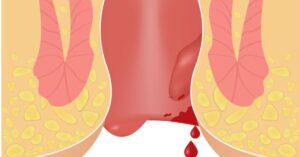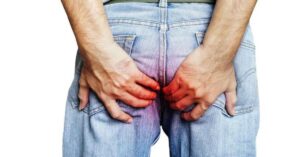The Role of Diet in Managing Piles:
Diet can play an important role in managing piles, and making certain changes to your eating habits can help reduce symptoms and prevent flare-ups. Here are some dietary recommendations for managing piles:
What to eat:
- High-fibre foods: Aim to eat plenty of fruits, vegetables, whole grains, and legumes, as they can help soften stool and make bowel movements easier. Fibre can also help prevent constipation, which is a common cause of piles.
- Water: Drinking plenty of water can help prevent dehydration and make stool softer, which can make bowel movements more comfortable.
- Probiotics: Probiotics are beneficial bacteria found in some foods and supplements, and they can help improve digestive health and reduce inflammation. Foods rich in probiotics include yogurt, kefir, sauerkraut, and kimchi.
What to avoid:
- Low-fibre foods: Avoid foods that are low in fibre, such as processed snacks, fast food, and dairy products, as they can contribute to constipation and make piles worse.
- Spicy foods: Spicy foods can irritate the digestive tract and make piles more painful.
- Alcohol and caffeine: These substances can dehydrate the body and make stool harder, making bowel movements more difficult and painful.
In addition to making changes to your diet, it’s important to practice good bowel habits, such as not delaying bowel movements, avoiding straining during bowel movements, and taking breaks from sitting for extended periods. If you have any questions or concerns about managing piles, consult with a piles doctor in Indore for advice on the best treatment options for you.



